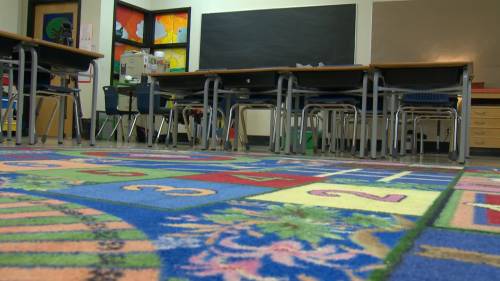As Alberta families prepare for back-to-school season, an unsettling cloud looms over the province’s education system. The Alberta Teachers’ Association (ATA) has issued strike warnings that could potentially disrupt the academic calendar before classes even begin, following months of tense negotiations with the provincial government over working conditions and compensation.
The standoff between Alberta’s 46,000 teachers and the provincial government has intensified in recent weeks, with ATA President Jason Schilling emphasizing that educators’ patience is wearing thin. “Teachers have been working without a collective agreement since last year, and the lack of meaningful progress in addressing classroom sizes and support resources has pushed many to consider job action,” Schilling stated during yesterday’s press conference in Edmonton.
At the heart of the dispute lies several critical issues that have remained unresolved despite multiple negotiation rounds. Teachers are advocating for smaller class sizes, additional support for students with complex needs, and salary adjustments that reflect inflation and increased workloads. Meanwhile, the provincial government maintains that fiscal constraints limit their ability to meet these demands.
Education Minister Adriana LaGrange expressed concern about the timing of potential job action. “We remain committed to good-faith negotiations, but threatening strike action just as families are preparing for the school year creates unnecessary anxiety,” LaGrange said in a statement released through her office. “Our priority remains ensuring Alberta students receive uninterrupted, quality education.”
Parents across the province have expressed mixed reactions. Sarah Thornton, a Calgary mother of three school-aged children, voiced her frustration: “While I support teachers getting fair treatment, the timing couldn’t be worse for families who are already struggling with back-to-school preparations and childcare arrangements.”
The potential strike comes amid broader educational challenges in Alberta. School boards have reported struggling with budget constraints, while teachers cite increasing classroom sizes and growing responsibilities without corresponding support. According to recent data from Alberta Education, average class sizes have increased by approximately 12% over the past five years, while specialized support staff positions have decreased.
Economic analysts at the University of Calgary’s School of Public Policy suggest that a province-wide teacher strike could have significant economic implications beyond education. “When schools close unexpectedly, we typically see workplace productivity decline as parents scramble for childcare solutions,” notes economist Dr. Melissa Anderson. “The economic impact could reach millions of dollars daily in lost productivity.”
Both sides have indicated willingness to return to the negotiation table, with mediators scheduled to facilitate discussions later this week. However, the ATA has not ruled out the possibility of strike votes being held in early September if substantial progress isn’t made.
Student advocacy groups have also entered the conversation, with the Alberta Student Alliance expressing concern about educational continuity. “Students have already faced significant disruptions during the pandemic years,” said spokesperson Jordan Chen. “Another interruption threatens not just academic progress but student well-being.”
As the clock ticks toward the first day of school, stakeholders across Alberta’s political landscape are watching closely. Opposition critics have called for emergency legislative sessions to address the education system’s funding and resource allocation before the situation escalates further.
For now, Alberta families remain in limbo, uncertain whether school bells will ring as scheduled or if picket lines will form outside classroom doors. As this situation develops, the fundamental question remains: can Alberta find a sustainable solution that addresses teachers’ concerns while maintaining educational stability, or are we witnessing the beginning of a protracted conflict that could reshape the province’s approach to education funding and policy?










